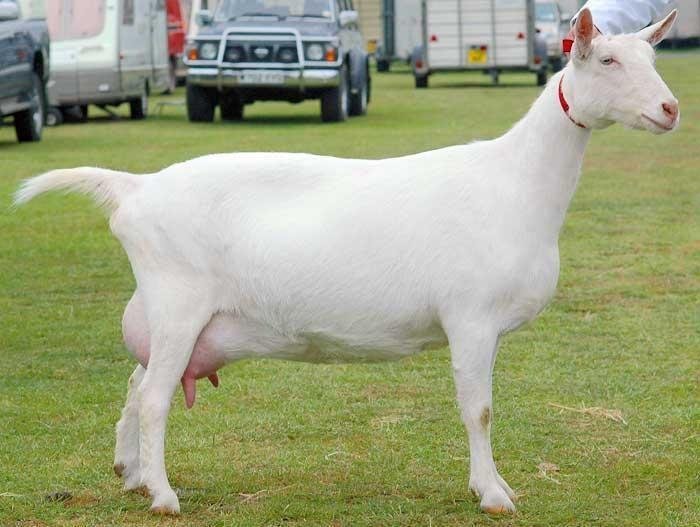Dairy goats for Ghana
Saanen breed of dairy goats, the breed that we will be utilizing.
The drought that is affecting most of Ghana has impacted their crops and the war in Ukraine has raised the price of imported grains beyond what most people can pay. The hospitals are concerned about infant health because many new mothers’ nutrition is too poor for them to make enough milk for their babies. Dr. Lordson Dagba, working with Professor Godwin Deku from Kwame Nkrumah University of Science and Technology (KNUST) in Ghana, came up with a solution so Ghana could handle this issue internally. They asked us if we could help introduce dairy goats to Ghana.
Goats absolutely thrive in Ghana, but, surprisingly, there are no dairy goats. Goat milk would help provide high quality nutrition to people of all ages. With newfound friends and partners in New Zealand, we have come up with a plan to import frozen embryos from New Zealand to Ghana, and transfer them into Ghanaian goat recipients. The export company is doing this below cost, with the fees including permitting and shipping. We have a U.S. theriogenologist who has volunteered to go to Ghana to do the embryo transfer procedures. These are top dairy-producing goats, and the embryos have full siblings in production in South America and Asia.
Why dairy goats?
A term used for diary animals in developing nations in “sustainable nutrition” since you don’t have to kill the animal to benefit nutritionally. Laying hens are another example, which we provided to the Presbyterian School in Enchi, Ghana.
“Dairy goats have the potential to transform the dairy industry in Ghana as most communities are familiar with goats, and the relatively small sizes of goats make them less intimidating, which will encourage women and even children to participate in the project.”
The 2030 Agenda for Sustainable Development, adopted by all United Nations (UN) members in 2015, created 17 world Sustainable Development Goals (SDGs).
“Studies have shown the benefits of non-cow milk sources to the health of adults and children. The Yonkofa Project and KNUST have agreed that importing dairy goats to Ghana for milk production can contribute to the no-hunger and poverty alleviating goals (Sustainable Development Goals 2 and 1 respectively).”
How can you help?
You can donate to a goat embryo using the button below! Each embryo is $300, and we are hoping to send 100 to start with. You can donate the entire amount or partial, any amount helps. You can also donate one in honor of someone!



